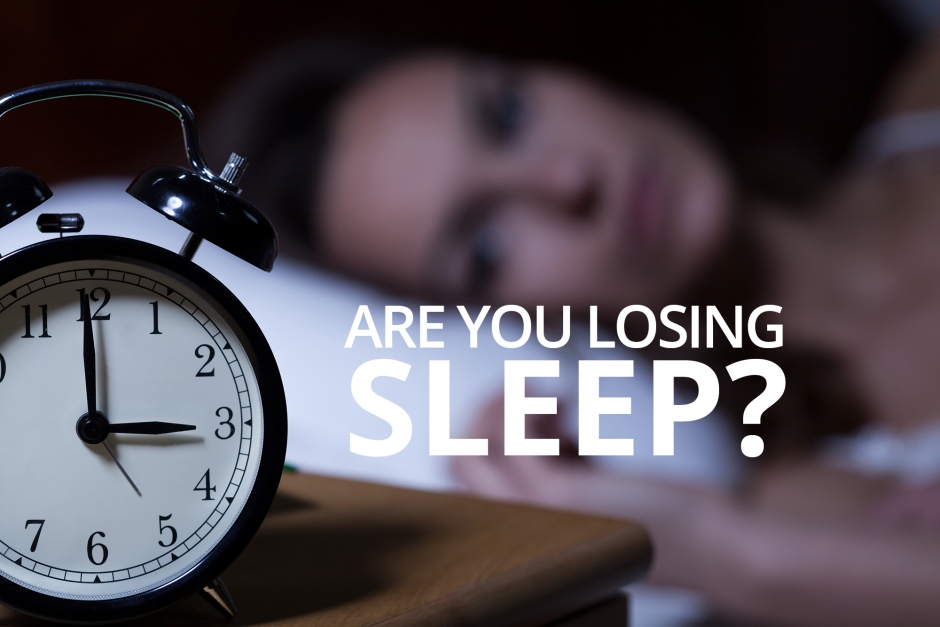There is a difference between insomnia and mere sleep disturbance. Waking up more or less regularly at 3:00am is not insomnia. Many people have a pattern of four to five hours of sleep followed by a period of wakefulness. Sleep expert Joseph Emet helps us draw the line.
Insomnia is a big and scary word, but being a light sleeper is not insomnia. Neither is requiring less than eight hours of sleep. And anyway, that eight-hour myth has been debunked by research. If there is a yardstick, it is most properly seven hours a night. People who regularly sleep seven hours experience better quality of life, and live longer than others. But that does not mean that this particular yardstick applies to you. We all have different requirements in many areas. Our requirements may also change over time.
Back to insomnia. Are we quibbling about words? Yes, and no. Yes, because some of these other conditions can be quite stressful as well. No, because in my understanding, insomnia proper sets in when you get obsessed with the amount and quality of sleep you are getting (or not getting), and you obsess about it. You may try to control sleep consciously, and as a consequence, you become hyper-vigilant. You get upset because you are not sleeping. You start thinking thoughts like, “Oh, no… not another sleepless night, and another sleepy and tired day tomorrow. Why is this happening to me? Why can’t I sleep normally like other people?” And so on. Now, what keeps you awake is your reaction more than anything else. Being upset at anything is not particularly sleep inducing.
In my book, Buddha’s Book of Sleep—Sleep Better in Seven Weeks with Mindfulness Meditation, I suggest mindfulness practices for achieving better sleep. Mindfulness practices promote being in our senses over being in our thoughts, and being in the “Here and Now” over being in the past or the future. You may be physically lying down in a dark, quiet, and comfortable bed, but mentally you may be going over an acrimonious argument you had with your teenage son earlier that day. And the body does not know the difference between an imaginary argument and a real one. In both cases it gets all worked up, and pretty soon, you are more ready for jogging than for sleeping.
Mindfulness makes it possible to let go, and to abandon yourself to sleep. This is different from trying to control sleep. There are some things we can and do control, like our skeletal muscles, and which way our car is going when we are behind the wheel. There are other things we cannot control consciously. Sleep is one of them. The conscious mind may be good at creating the conditions for sleep, like turning off the light and so on, but it has no clue about how to do sleep. The “doers” among us may carry the control habit too far where it stops functioning and backfires. Mindfulness makes it possible to be aware of our habits of mind, our attitudes, and our thoughts. Awareness is the first step towards change.
Buddha’s Book of Sleep addresses these and other sleep problems; it also has guided meditation exercises you can do in order to develop a more accepting attitude towards yourself, and a more peaceful attitude in bed. Just knowing about these things may not be enough. Mindfulness is a skill, and the exercises are designed to develop this skill so that it will be available when needed. Many people find that as a result of doing these exercises the quality of their daytime life, and the quality of their relationships also improve. The same mindfulness skills also help reduce the amount of stress we feel.
Advice from the sleep expert, Paul McKenna
• Research shows that if you get up just half an hour than your usual waking time, it resets your body clock and works a treat in helping you sleep. So get up at 6:30am instead of 7:00am.
• The bedroom is for two things, sleeping and making love. Do not watch TV in bed. Action movies will get your adrenalin going in a way that is different to sexual excitement, and the news will get you all wound up because of all the negativity.
• Use a hypnosis CD or app to help calm you down. Getting to sleep is a process, and people who suffer from insomnia get wound up and obsess about how much sleep they are getting. To fall asleep you need to be calm and relaxed, and if you wake up in the middle of the night, get up and do something boring, like your accounts or cleaning the house. Don’t reward yourself by doing something interesting.
• A common cause for not being able to sleep is a racing mind. To overcome this you need to silently describe your stream of consciousness, but it is very important that you do this silently. Use a boring voice, like a university lecturer, and say, “Now I am aware that I am thinking about this. Now I am aware that I am thinking that” as each thought pops into your head.
• Stay away from apps that focus on the time you spend awake rather than the quality of your sleep. It’s not about the number of hours of sleep you get, but rather the quality of sleep. My app, “I can help you sleep” will help you relax before you sleep and encourage the quality of sleep you need.




